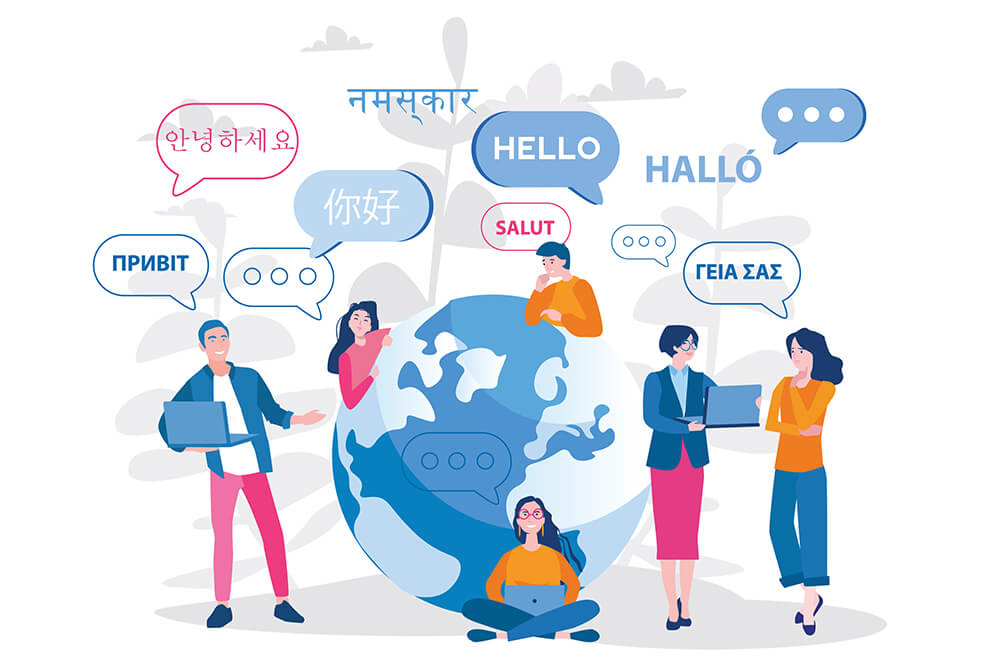Interpretation Services India

Interpretation Services India
Interpretation Services India In an era of global interconnectedness, effective communication across diverse linguistic and cultural landscapes is paramount.
Nowhere is this more evident than in a country as linguistically diverse as India. The need for accurate and culturally sensitive communication has given rise to a burgeoning industry Interpretation Services.
We provide interpretation services in a wide range of different settings including
This essay delves into the landscape of Interpretation Services in India, exploring their types, challenges, impact on various industries, and the evolving role of technology in this field. Interpretation services play a pivotal role in breaking down language barriers, fostering understanding, and facilitating meaningful communication.
In India, a nation with over 1,600 spoken languages, this need is particularly acute. Moreover, interpretation services serve as the linguistic bridge that connects people from different backgrounds, enabling them to communicate effectively.
The Landscape of Interpretation Services India
India’s interpretation services industry has experienced significant growth in response to globalization. Multinational corporations, government agencies, healthcare providers, and legal entities all rely on these services to navigate the complex linguistic terrain.
Key players in the industry have emerged, offering a range of interpretation solutions to meet diverse needs. Consequently, this growth reflects the increasing demand for seamless communication in a world where borders are becoming less significant. It is crucial to understand the various facets of the interpretation landscape, which encompasses an array of services tailored to meet the unique requirements of different sectors and situations.
Types of Interpretation Services India
Simultaneous Interpretation: Often employed in conferences and large events, simultaneous interpretation requires quick thinking and linguistic dexterity as interpreters convey spoken words in real time. Simultaneously, interpreters must maintain accuracy and coherence, ensuring that the essence of the message is not lost amidst the rapid exchange of ideas.
On the other hand, consecutive interpretation involves the interpreter speaking after the source language speaker has finished. It’s commonly used in legal settings, interviews, and smaller group discussions. By providing a sequential interpretation, the interpreter has the opportunity to carefully craft the translated message, ensuring precision and clarity.
Additionally, in situations requiring a personal touch, such as business meetings or cultural exchanges, escort interpreters accompany individuals, ensuring smooth communication. Their role extends beyond mere language translation; they act as cultural liaisons, bridging gaps and fostering understanding between individuals from different cultural backgrounds.
With advancements in technology, over-the-phone interpretation has gained popularity, offering on-demand language services for remote communication. This method facilitates quick access to interpretation services, breaking down geographical barriers and providing instant language support when needed.
The Challenges and Solutions Interpretation Services India
India’s linguistic diversity presents a unique set of challenges for interpreters. Navigating regional dialects and ensuring cultural nuances are accurately conveyed require a deep understanding of the local context. Moreover, interpreters need to adapt their communication styles based on the audience, balancing linguistic accuracy with cultural sensitivity. Furthermore, technological solutions, including machine learning and artificial intelligence, are increasingly aiding interpreters in overcoming these challenges. These tools assist in real-time language processing, enhancing the speed and accuracy of interpretation services. While technology provides valuable support, the human touch remains indispensable in preserving the subtleties of language and culture.
Industries Benefiting from Interpretation Services India
In the corporate sector, international business transactions rely on interpretation services to facilitate effective communication between parties speaking different languages. This is particularly evident in negotiations, where nuances in language can significantly impact the outcome of discussions.
Similarly, in the healthcare sector, accurate interpretation is crucial for ensuring that patients understand their diagnoses and treatment plans, irrespective of language barriers. Misinterpretation in healthcare settings can have severe consequences, emphasizing the need for skilled interpreters. Likewise, interpretation services play a vital role in legal proceedings, ensuring that all parties involved comprehend and can effectively communicate their positions.
Legal documents and testimonies require precise interpretation to uphold the integrity of the legal process. Additionally, international conferences heavily depend on interpretation services, fostering collaboration and understanding where participants may speak a variety of languages. These services contribute to the success of global initiatives by facilitating clear and accurate communication.
The Human Touch: Professional Interpreters India
The art of interpretation goes beyond language proficiency; it requires a deep cultural understanding. Professional interpreters undergo rigorous training and often hold certifications to ensure they meet the highest standards. Moreover, their role extends beyond linguistic translation; they serve as cultural ambassadors, promoting understanding and cooperation. Furthermore, ethical considerations, such as confidentiality and impartiality, are central to their practice. Maintaining strict ethical standards is crucial in building trust between the interpreter and the parties involved, establishing a foundation for effective communication.
Case Studies
Examining successful instances of interpretation services in India underscores their impact on businesses, healthcare, and legal proceedings. Real-world examples demonstrate how effective interpretation can lead to positive outcomes in various scenarios. For instance, in the corporate sector, accurate interpretation has facilitated successful international partnerships and expansions. Similarly, in healthcare, skilled interpreters have played a crucial role in improving patient outcomes by ensuring clear communication between healthcare providers and patients from diverse linguistic backgrounds. Legal cases too have seen fair and just resolutions due to the precise interpretation of legal documents and testimonies.
Future Trends in Interpretation Services India
As technology continues to advance, the interpretation services industry is poised for transformation. Machine learning and AI are gradually augmenting human capabilities, providing faster and more cost-effective solutions. Anticipated changes and innovations in the industry suggest a future where language barriers may become less formidable. Moreover, the integration of artificial intelligence in interpretation services is expected to streamline processes and enhance accuracy. Automated language processing tools may handle routine tasks, allowing human interpreters to focus on more complex linguistic and cultural nuances. This collaboration between technology and human expertise is likely to redefine the landscape of interpretation services in the coming years.
Cultural Sensitivity in Interpretation
Interpreters must not only convey words accurately but also understand and respect cultural nuances. Instances of miscommunication due to cultural insensitivity highlight the importance of incorporating cultural understanding into the interpretation process. A culturally sensitive interpreter not only ensures accurate language translation but also facilitates an environment of mutual respect and understanding. Furthermore, cultural sensitivity extends beyond language to encompass non-verbal cues, gestures, and contextual awareness. Interpreters must be attuned to the cultural nuances that may impact communication, allowing for a more comprehensive and effective interpretation process.
Conclusion
In conclusion, interpretation services in India are indispensable for fostering effective communication in a nation characterized by linguistic diversity. As businesses, healthcare providers, and legal entities increasingly recognize the value of accurate interpretation, the industry is set to play an even more crucial role in shaping successful cross-cultural interactions.
Moreover, embracing these services is not just about breaking language barriers but about building bridges of understanding in our interconnected world. The continued evolution of interpretation services, coupled with advancements in technology, holds the promise of creating a more inclusive and globally connected society. In navigating the complex tapestry of languages and cultures, interpretation services stand as essential tools in fostering unity and cooperation on a global scale.





